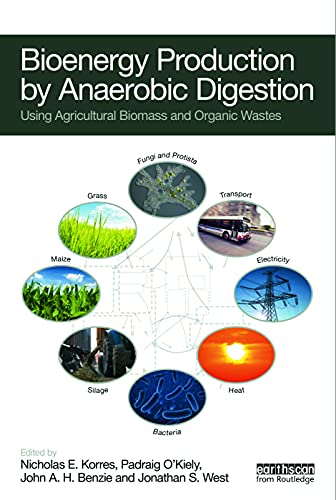

Most ebook files are in PDF format, so you can easily read them using various software such as Foxit Reader or directly on the Google Chrome browser.
Some ebook files are released by publishers in other formats such as .awz, .mobi, .epub, .fb2, etc. You may need to install specific software to read these formats on mobile/PC, such as Calibre.
Please read the tutorial at this link: https://ebookbell.com/faq
We offer FREE conversion to the popular formats you request; however, this may take some time. Therefore, right after payment, please email us, and we will try to provide the service as quickly as possible.
For some exceptional file formats or broken links (if any), please refrain from opening any disputes. Instead, email us first, and we will try to assist within a maximum of 6 hours.
EbookBell Team

4.3
48 reviewsInterest in anaerobic digestion (AD), the process of energy production through the production of biogas, has increased rapidly in recent years. Agricultural and other organic waste are important substrates that can be treated by AD.
This book is one of the first to provide a broad introduction to anaerobic digestion and its potential to turn agricultural crops or crop residues, animal and other organic waste, into biomethane. The substrates used can include any non-woody materials, including grass and maize silage, seaweeds, municipal and industrial wastes. These are all systematically reviewed in terms of their suitability from a biological, technical and economic perspective. In the past the technical competence and high capital investment required for industrial-scale anaerobic digesters has limited their uptake, but the authors show that recent advances have made smaller-scale systems more viable through a greater understanding of optimising bacterial metabolism and productivity. Broader issues such as life cycle assessment and energy policies to promote AD are also discussed.